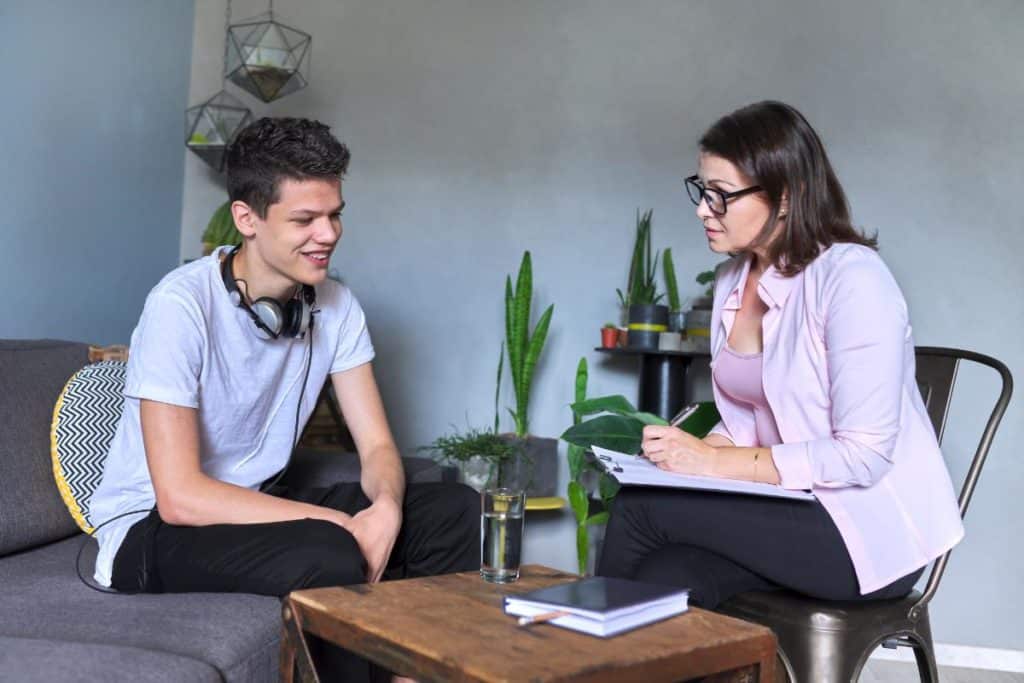If your teen has received a mental health diagnosis, you may be wondering what to do next. There are so many treatment options, and it can be overwhelming to decide the best course for your teen. A diagnosis and comprehensive assessment can direct the course of treatment. One highly beneficial treatment option is a structured day treatment program that offers holistic and evidence-based treatment modalities, including cognitive-behavioral therapy (CBT).
For teens with mental health or behavior issues, the sooner they receive treatment, the better the outcomes. A program tailored specifically to teens addresses their needs and provides critical peer support. Imagine Spokane delivers high-quality, comprehensive mental health treatment for teens. Reach out to us at 888.384.3143 to learn how our programs can benefit your teen.
Healthy Tips for Teens Coping with Loss
For teens, loss encompasses more than the death of a loved one. The grief of loss is also associated with situations such as losing friendships, relationship breakups, not making a sports team, parental separation or divorce, or moving to a new town or school. Teens with an arsenal of healthy coping skills to fall back on have lower levels of stress, anxiety, and depression.
There are two main types of coping skills: problem-based and emotion-based. Following is a closer look at both:
- Problem-based coping is beneficial for times when you need to change a situation. Examples include asking for help, making a to-do list, practicing time management, or setting boundaries.
- Emotion-based coping focuses on managing your emotions when you do not want to change a situation, or circumstances are beyond your control. Examples include exercising, taking a bath, meditating, or giving yourself a pep talk.
For example, say you told your teen to clean their room before the end of the day, and they did not. Using problem-based coping, you might shut the bedroom door, so you cannot see the mess. Using emotion-based coping, you might take a warm bath to calm down, so you do not yell at your teen.
Teens coping with loss can utilize both types of coping. The more coping skills they have to draw on, the better. Commonly relied upon coping skills include:
- Practicing self-care
- Engaging in a hobby
- Exercising
- Focusing on a specific task
- Practicing yoga or mindful meditation
- Using relaxation strategies
While your teen needs to know how to utilize healthy coping skills to relieve their distress, these techniques should not constantly distract them from reality. At some point, they need to face their emotions head-on.
How Can Cognitive-Behavioral Therapy (CBT) Help Your Teen?
CBT is a widely popular evidence-based treatment modality that has countless therapeutic applications. CBT works on the process of gaining knowledge (cognition) and the ways a person conducts themselves (behavior) by having them work through problematic patterns of thinking and behavior. Rather than focusing on past events or worrying about the future, CBT focuses on the present moment.
The theory behind CBT is that thoughts, feelings, and actions are interconnected and that a person’s thoughts, not external events or experiences, influence their behaviors. CBT aims to help individuals identify and change negative or unhealthy patterns of thinking that can contribute to harmful emotions and risky behaviors.
There is a great deal of scientific evidence showing that CBT methods produce change and do so relatively quickly. At Imagine Spokane, our highly trained clinicians use CBT in a variety of individual, group, and family therapy sessions that employ techniques such as:
- Cognitive restructuring or reframing
- Guided discovery and self-observation
- Exposure therapy
- Journaling
- Relaxation and stress reduction
- Problem-solving skills and coping mechanisms
- Role-playing
No matter your teen’s mental health or behavioral issues, CBT can give them the tools to apply to situations to help avoid adverse outcomes, as long as they are willing to put in the work.
Imagine Spokane: Providing Teens with Healthy Coping Mechanisms for Teens
At Imagine Spokane, we know about the effectiveness of CBT but understand it is not a one-size-fits-all treatment and may not work for everyone. Our team will determine if CBT will be an appropriate part of your teen’s treatment through our comprehensive admissions process. CBT is proven effective for and commonly used in treating a wide range of disorders. Contact Imagine Spokane at 888.384.3143 to learn more about teen mental health treatment options.

